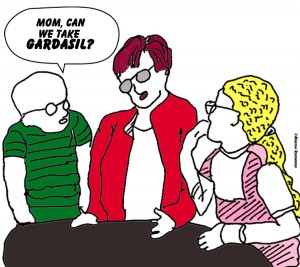“Traditionally, fibromyalgia falls under the scope of rheumatologists. But today, primary care doctors, podiatrists, osteopaths, psychiatrists, neurologists — plus nurse practitioners — are overseeing long-term fibromyalgia treatment,” exults an article on WebMD.
And, sure enough, Pfizer ads on WLS-AM radio in Chicago exhort women to see their “nurse practitioner” for fibromyalgia because a visit “only takes five minutes.” As if time, not money or health, were the only issue.
Sure, private insurance and government entitlement programs may cover the $100-to-$200 a month cost for Cymbalta, Savella and Lyrica now that they are approved for fibromyalgia, raised insurance rates and squandered tax dollars notwithstanding.
But should doctors prescribe people with simple pain, seizure drugs like Lyrica and antidepressants like Cymbalta and Savella which are linked to life threatening side effects including the risk of suicide?
People taking Lyrica (pregabalin) have twice the amount of suicidal thinking of those not on the anticonvulsant says an FDA alert issued in January. And Lyrica’s parent molecule, Neurontin (gabapentin) is also linked to suicide in an article in the April 14 Journal of the American Medical Association (JAMA.)
Meanwhile Cymbalta — an SNRI (serotonin-norepinephrine reuptake inhibitor) antidepressant like Savella — has a long trail of inexplicable suicides like 19-year-old Traci Johnson, a healthy volunteer who participated in its initial trials. There was also Carol Anne Gotbaum, the daughter-in-law of New York City Public Advocate, Betsy Gotbaum, who killed herself in police custody at Phoenix’s Sky Harbor airport in 2007 on the drug.
Families of two people taking Cymbalta who requested anonymity because of pending lawsuits told a reporter their loved ones were driving home for dinner and abruptly, for no apparent reason, killed themselves while taking the drug. Neither had any prior mental problems.
And Savella? Approved in the US in 2009 but rejected by European regulators for lack of effectiveness data and side effects?
Public Citizen asked the FDA to remove Savella from the market earlier this year because the FDA’s own statistical reviewer admitted there was “no evidence” it worked.
A 40-year-old user on askapatient.com writes that, “After three months of taking Savella, I started self-destructing and cutting myself,” and that, “I was not depressed and did not need a antidepressant, but Savella made me want to die.”
Of course fibromyalgia meds are not the only nostrum hawked to the general public. Ads for vaccines against human papillomavirus (HPV) which causes cervical cancer are everywhere.
Just as GSK’s HPV “glamour” ad, which debuted at the Oscars, seems to sell perfume but actually sells cervical cancer, poster-sized ads on Chicago’s CTA Red Line seem to sell individual Chicago neighborhoods but actually “sell” the many women at risk for cervical cancer in those neighborhoods. Very different.
GSK’s Cervarix and Merck’s Gardasil vaccines for the HPV virus are so lucrative the pharma giants are trying to position cervical cancer as the next big risk here — and in poor countries. But cervical cancer actually killed 12 times fewer people in 2009 than hospital-acquired infections according to Dr. Joseph Mercola — and 49 unexplained, Gardasil-linked deaths have been reported to the Centers for Disease Control and Prevention according to the Washington Examiner. Meanwhile, India has suspended trials with the vaccines after six suspicious deaths, says the Malaysian National News Agency this week.
Nor are the vaccines more effective than Pap smears or even cost effective, except to pharma. World health experts say the HPV vaccines never pay for themselves with boys — they are recommended for boys as young as nine — and don’t pay for themselves for women or girls if their effectiveness runs out and boosters are required which no one knows.
Some parents have objected to HPV vaccine advertising as child mongering.
“I was greatly offended that Merck suggest I vaccinate my nine-year-old daughter against an STD,” says Kelley Watson, a mother of two in Chicago’ Oak Park neighborhood. “Especially insulting was there was never any mention of HPV as an STD. It was presented as something women can contract through tampons or nylon stockings as if men played no part.”
It was only last year that Cymbalta maker Eli Lilly agreed to pay $1.42 billion for mismarketing its antipsychotic Zyprexa. Lyrica maker Pfizer agreed to pay $2.3 billion for Bextra, Geodon, Lyrica and Zyvox fraud in 2009 and $430 for mismarketing Lyrica parent Neurotin in 2004.
Do the aggressive fibromyalgia and HPV campaigns imply forgiveness is cheaper than permission?











